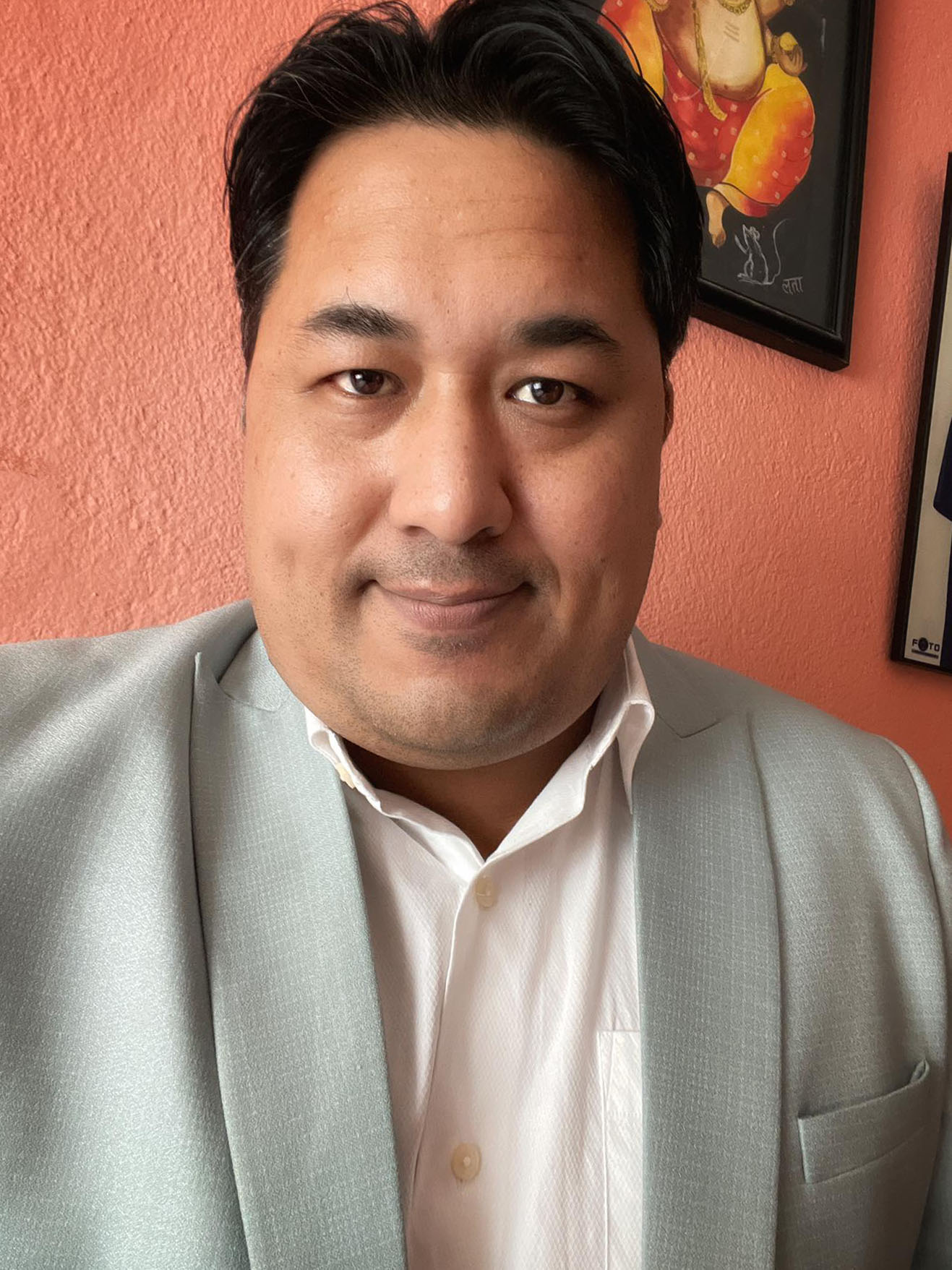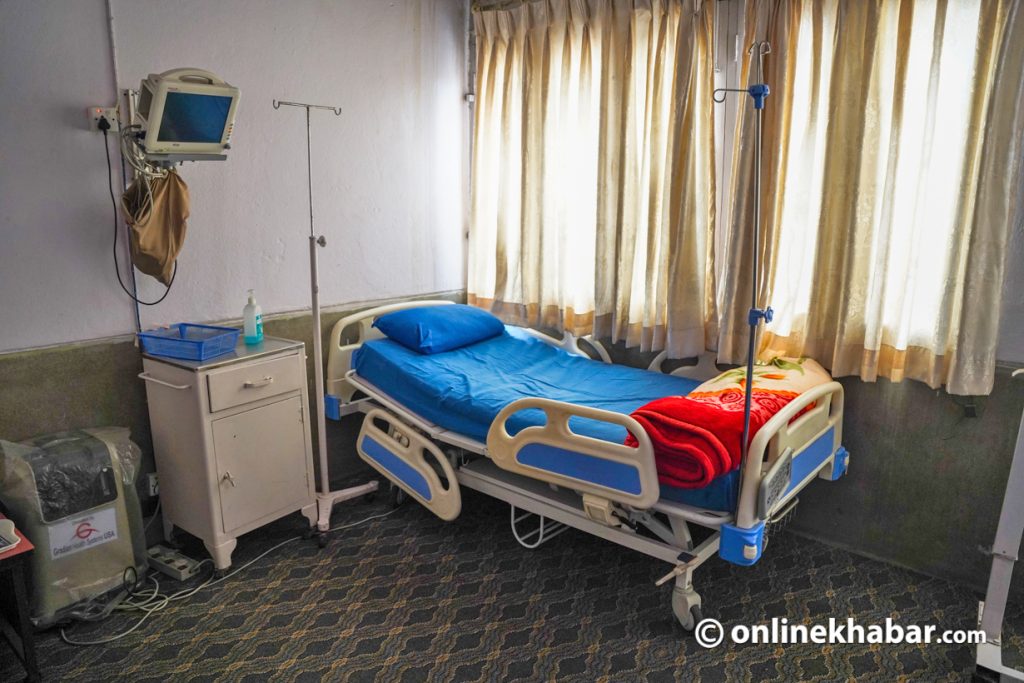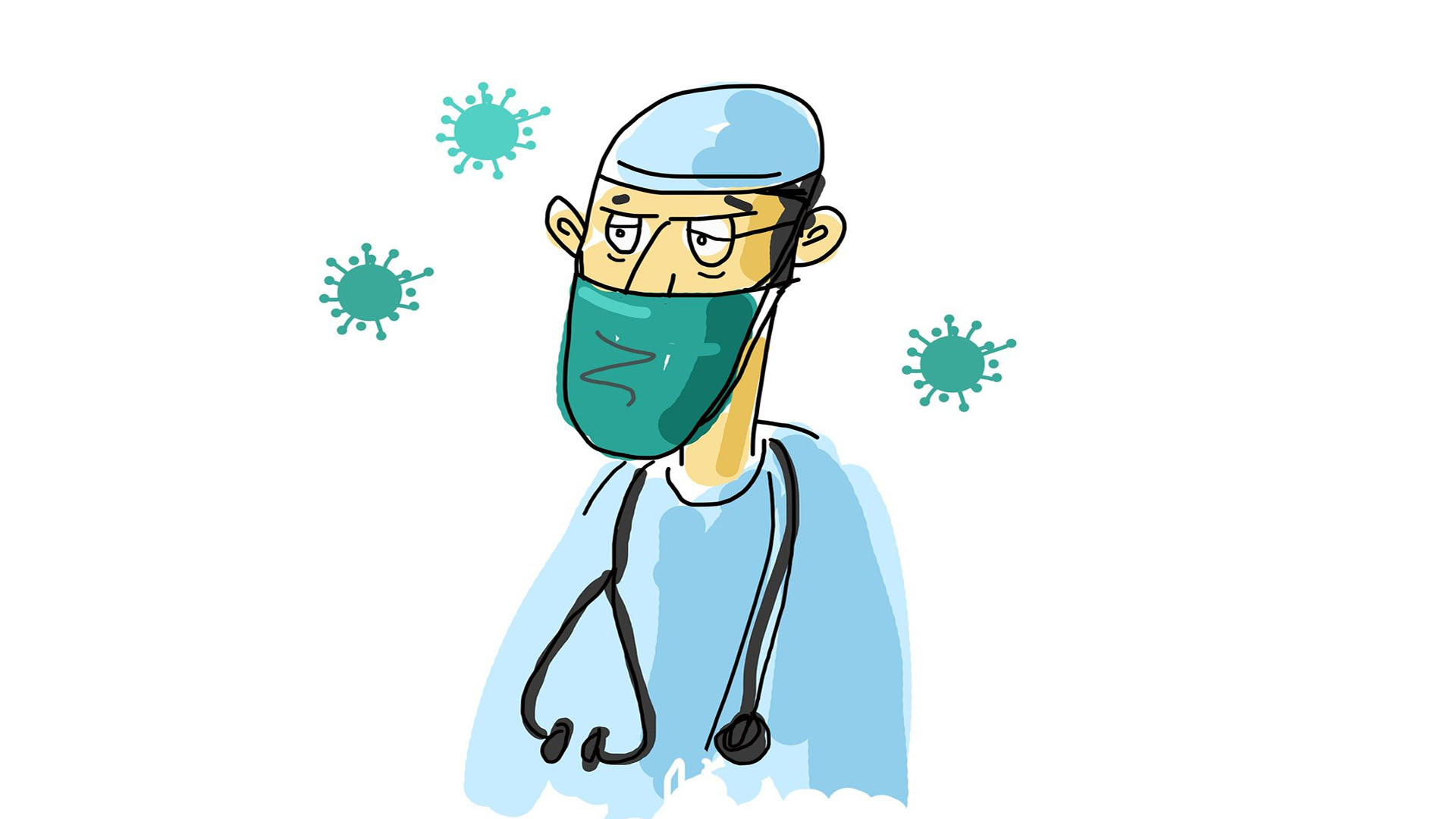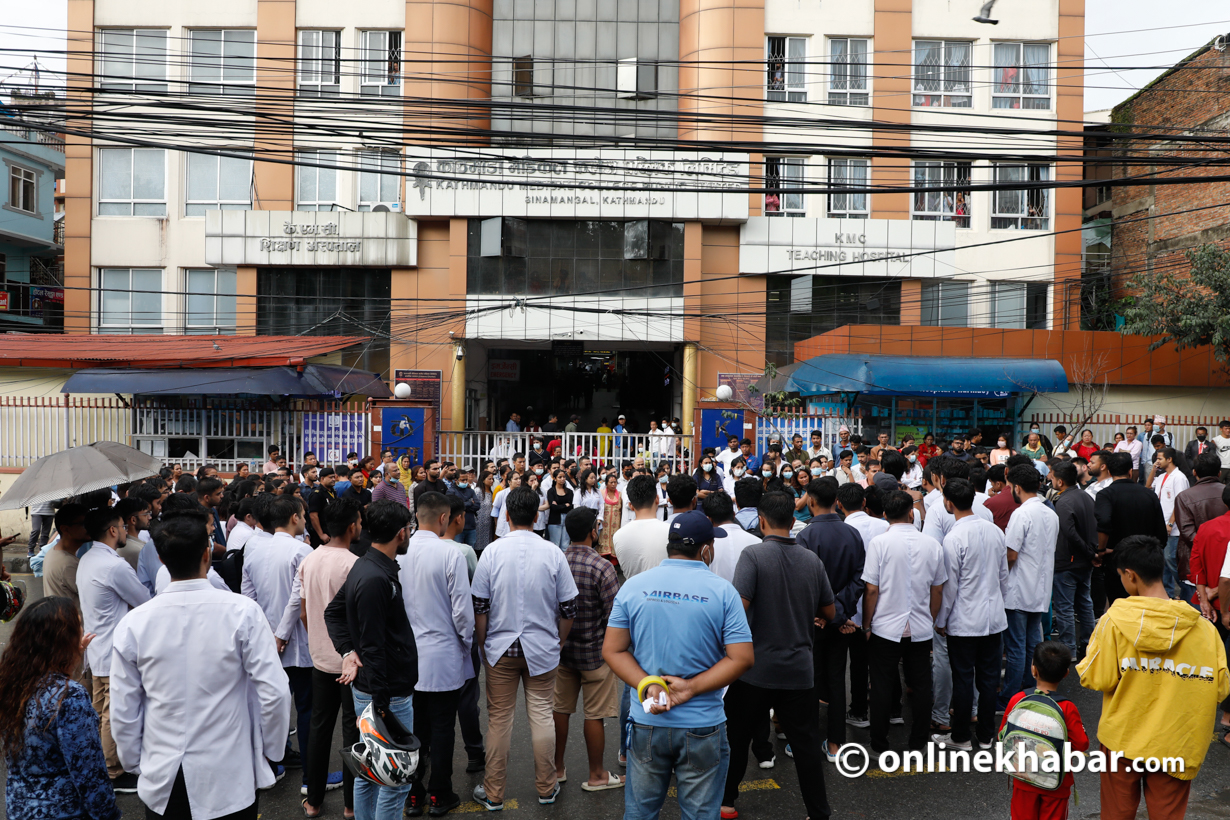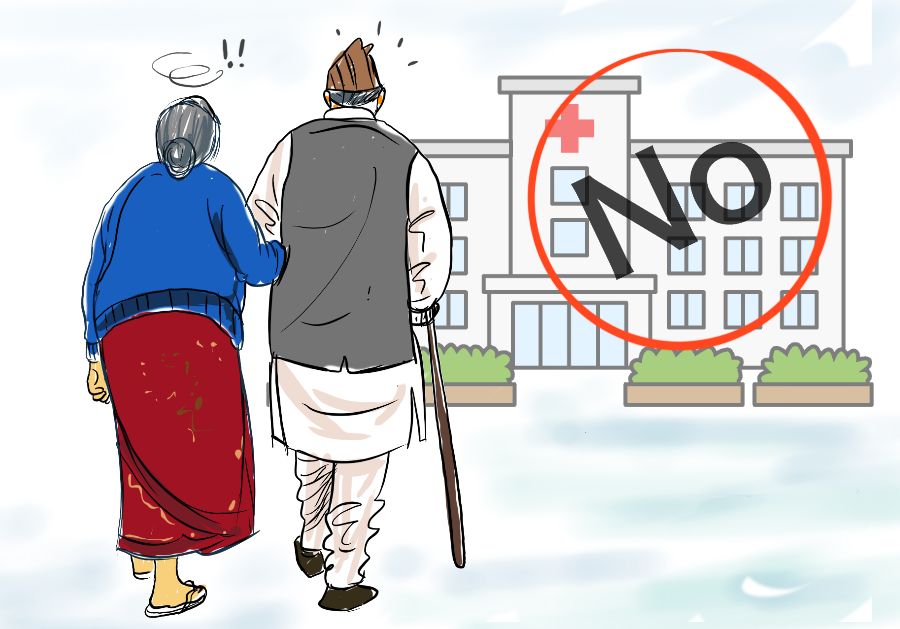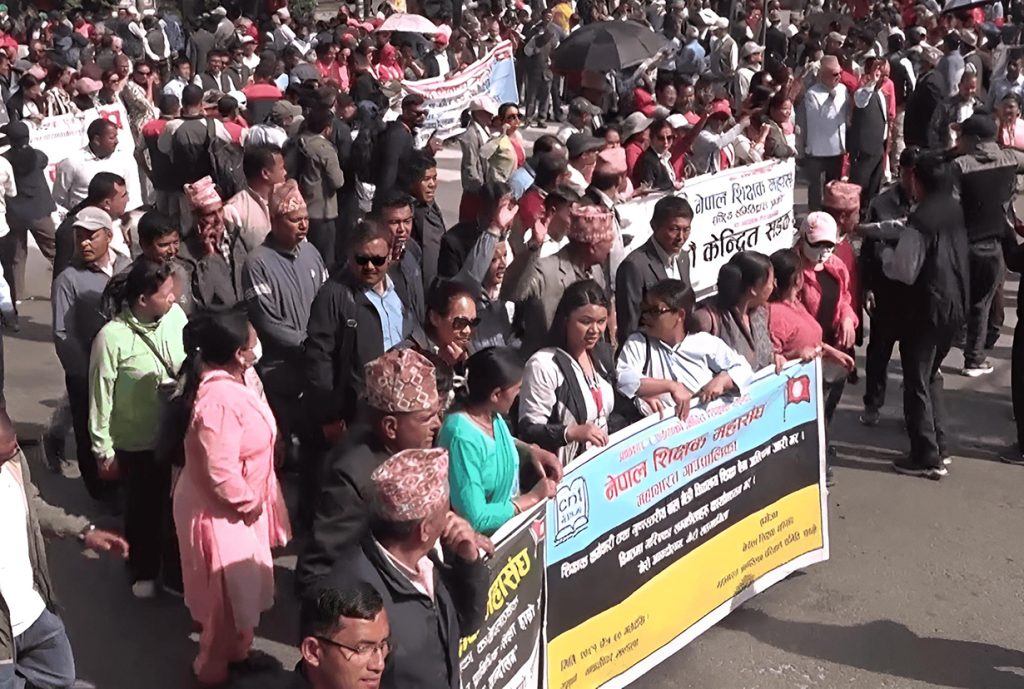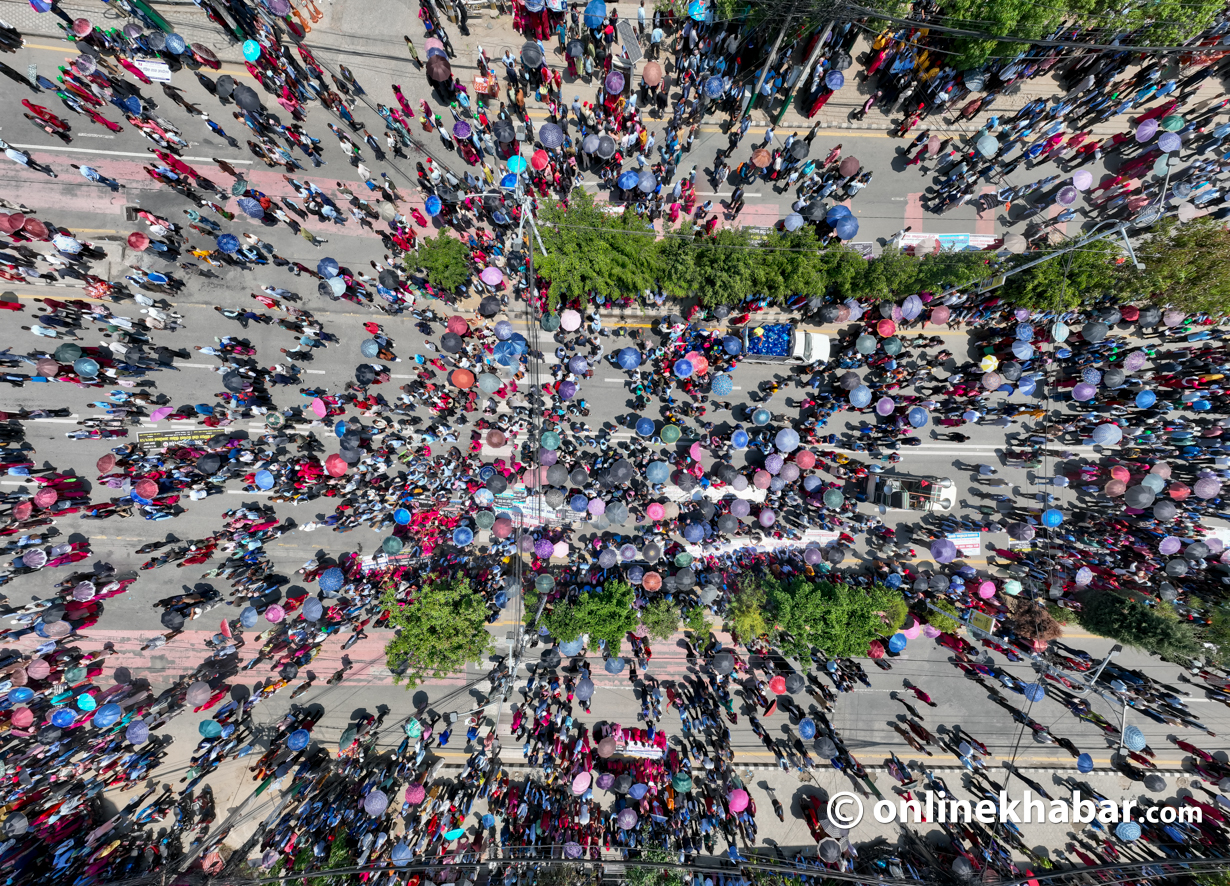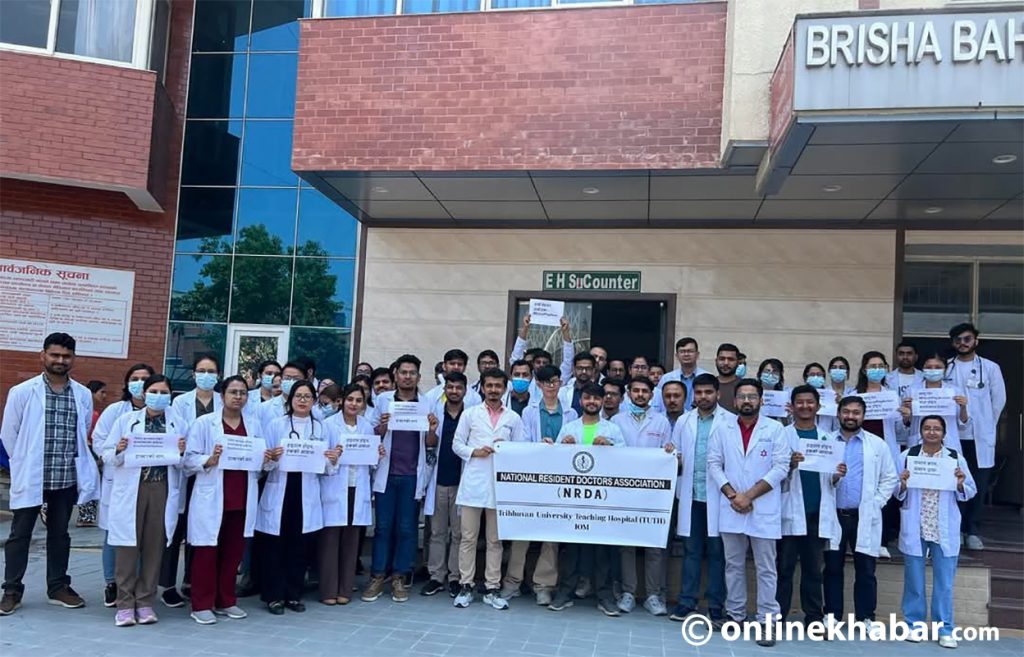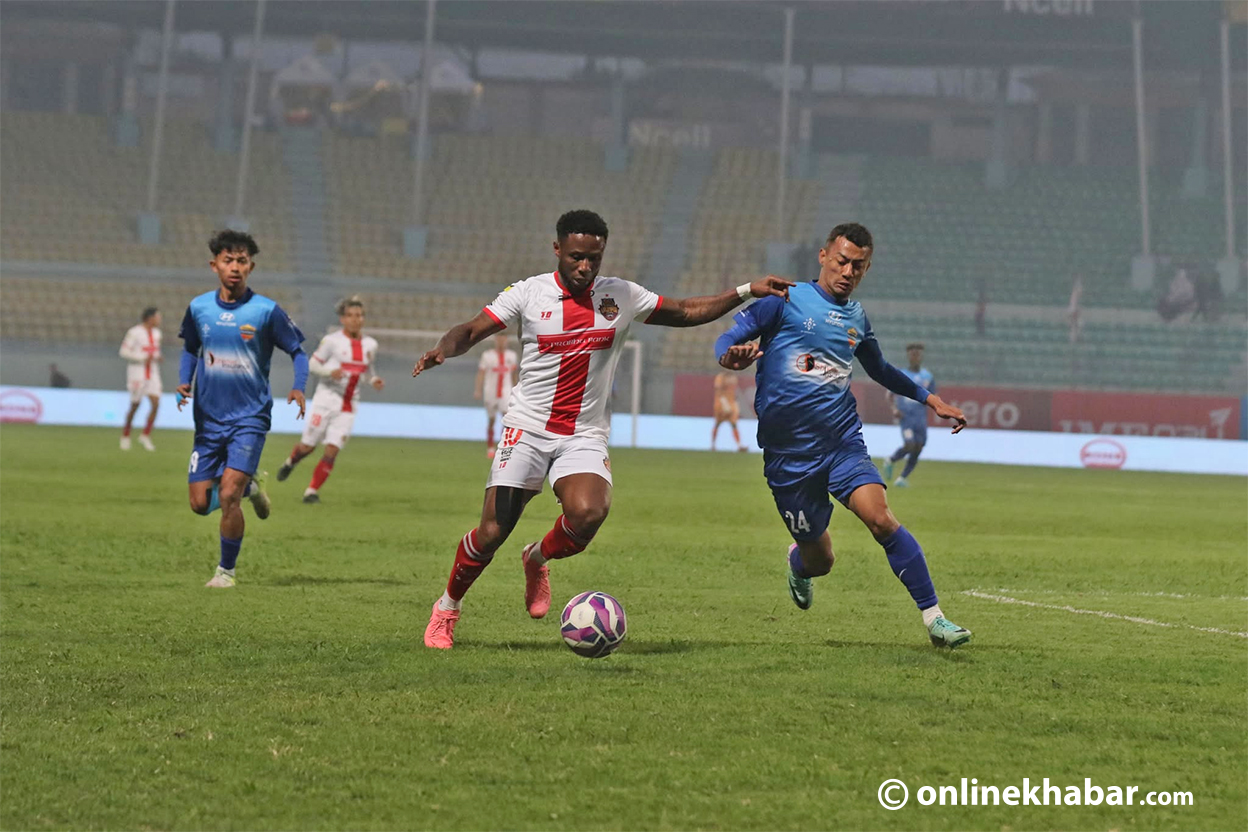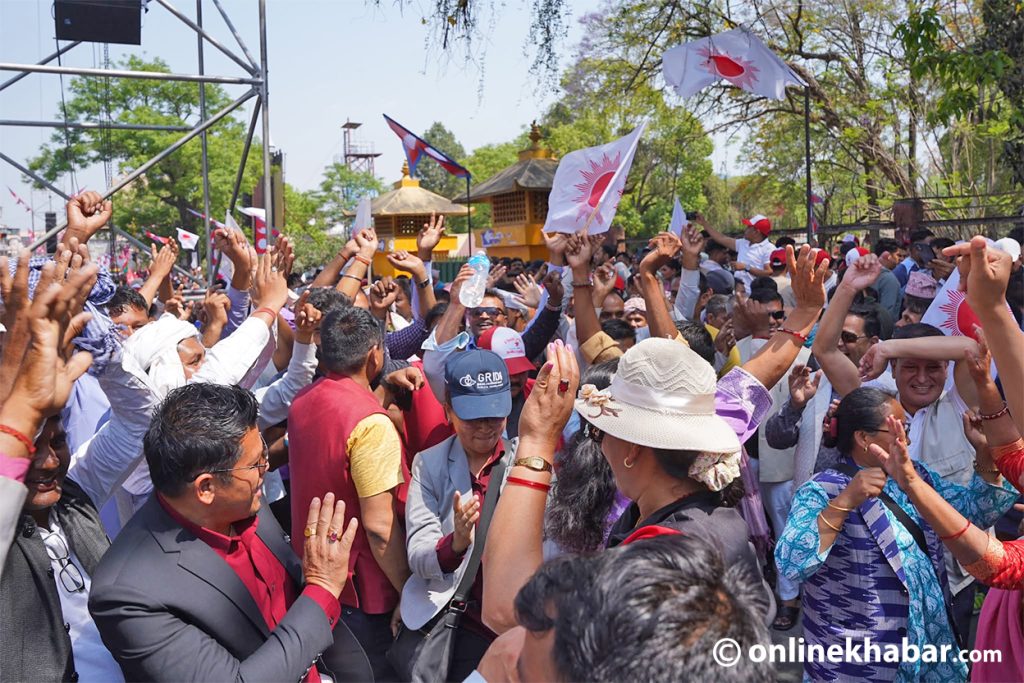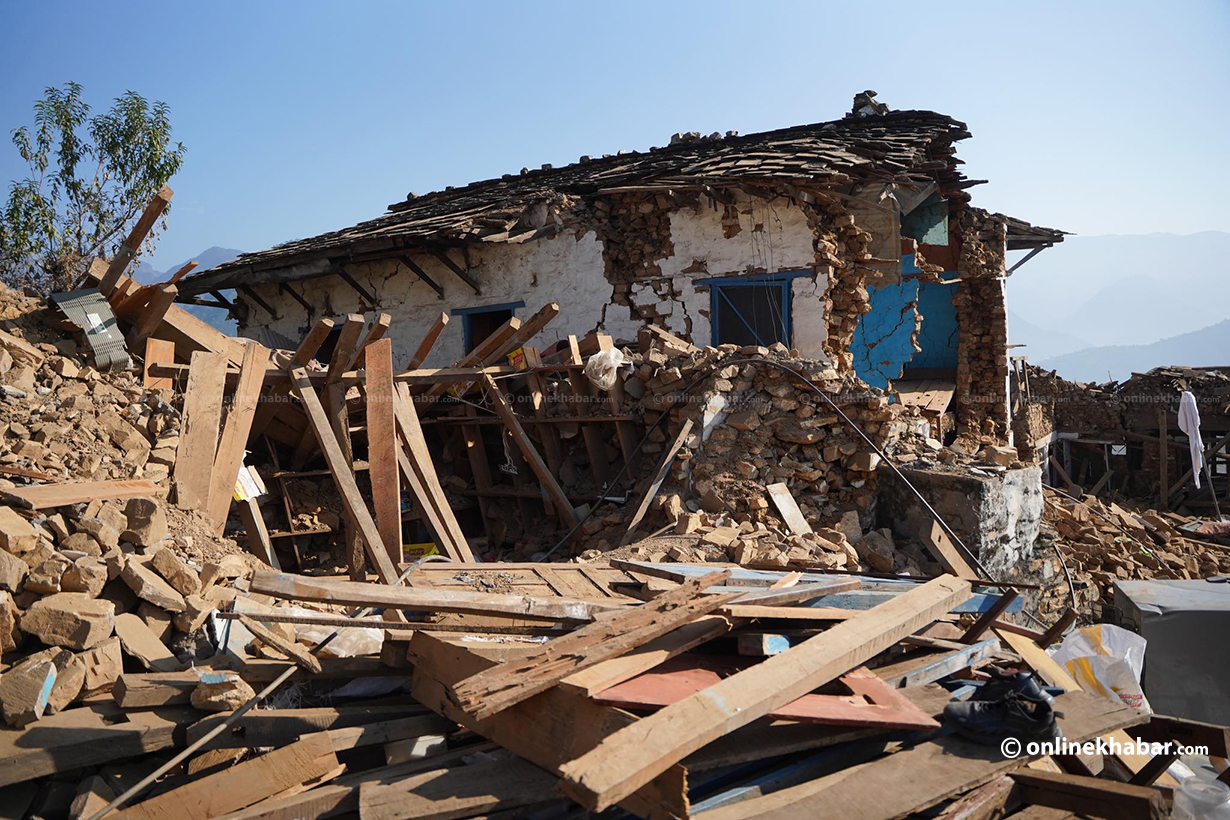
Growing up in my village in Palpa, I had to walk half an hour to reach school. It was a challenging journey, but my determination to achieve higher grades and make my family proud kept me going. There came a point when I outgrew my village, necessitating my departure. In order to provide me with the opportunity to study in a superior environment, my parents made the decision to send me to one of the finest schools in Kathmandu.
I remember wanting to be a doctor from an early age. My grandmother was diagnosed with various issues and I wanted to make all her pain disappear.
“I will become a doctor one day maa and treat you,” I told her.
After 15 years of schooling, I finally entered medical school, surrounded by hundreds of like-minded individuals who shared the same grand aspirations. Together, we were driven by the desire to study the intricacies of the human body.
Six years and six demanding exams per semester later, I completed my MBBS. A young boy from Palpa had fulfilled his dream of becoming a doctor into a reality.
A doctor’s duty

I have always been a selfless person. Wanting to give back, I wanted to work in the hospital where I was born. I wanted to help the people there and without a moment’s hesitation, as soon as I completed my education, I set off for my village.
Originally, my intention was to work there for a year. But I cannot explain how quickly two years flew by. Over that span, I had the honour of serving hundreds of patients who travelled great distances in search of care. The smiles they wore and the gratitude gleaming in their eyes never failed to remind me of the profound impact a doctor can have.
As a doctor, the imperative to continually evolve, learn, and refine my knowledge is paramount. With this in mind, I made the decision to pursue my master’s in medicine abroad. Those three years were far from easy. The demands of tests and presentations meant that sleep was a luxury I could scarcely afford.
Life proved to be incredibly challenging. There were moments when I wanted to throw in the towel, particularly because the relentless humidity was taking its toll on me. Contracting dengue fever only added to the struggle. Yet, with the dedicated care of fellow doctors and the right medication, I managed to push through and successfully complete my degree.
I was presented with an opportunity to work in the Philippines, but a deep yearning for home and the desire to serve my own people led me to return. Soon after, the devastating earthquake and the ensuing economic blockade took a toll on the entire country. Despite the immense challenges, the resilience of all Nepalis shone through.
It was a tough journey for me, but I held onto my plan. Day after day, tending to one patient after another, life pressed on. In the midst of it all, I saw some of the brightest young doctors who had worked alongside me leave for more promising prospects. However, deep within, I found the resolve to stay put. Leaving was not an option for me, as this was where I belonged.
“This is your home. Your motherland. These are your people,” I told myself.
I persistently reassured my dad that change would come, and it would be our generation that would bring about this change.
Despite the hope, I grew hopeless every day. During Covid, we worked tirelessly, putting on plastic covers as our protective gear, enduring the sweltering heat of Jhapa.
We conducted rounds for almost 80 patients every day, without any extra incentive, knowing that we had prepared for this day through years of study. In the midst of our efforts, I contracted Covid and came dangerously close to losing my life. To ensure my parents and children were not at risk, I had to make the tough decision to send them away for a year.
All the sacrifices I have made were because I was willing to do so for the love of treating patients in Nepal.
Both of my brothers live abroad. I too had the chance but I wanted to stay here. Having studied abroad myself, I was determined to serve my own people and live with them. As I grew up, I recall hearing people speak about doctors with a sense of reverence, almost treating them like heroes, or even as Gods to a few. However, I never aspired to be placed on such a pedestal. My desire was simply to focus on my work and lead a peaceful life.
At times, I find myself questioning why I have not already left. Every time I discuss my situation with peers, they emphasise the benefits of working as a doctor abroad – higher pay and a better quality of life. These are the very things I long for. All I seek is an improved work-life balance, something being a doctor in Nepal currently does not provide.
Time to go

As each day goes by, the situation seems to be deteriorating. The policies being formulated by the government appear not only short-sighted but also driven by populist motives. I have reached a point where I have stopped tuning into the news, as it often feels like a stream of biased, one-sided information influenced by political or personal agendas.
In the past decade, we used to witness violence against doctors on an annual basis. However, now it has escalated to occurring almost every week. Shockingly, in just the past two weeks, there have been eight major incidents. As a doctor, I believe there are three primary reasons for this alarming trend.
Firstly, the system is operating based on a framework that was established two decades ago, and it is failing miserably due to the substantial increase in population. Secondly, both the Government and the media have fallen short of effectively educating the masses about the consequences of negligence and the ensuing complications. And thirdly, there is a growing sense of anarchy among the people, who believe that with the backing of their political affiliations, they can act with impunity.
If you were to ask me about a solution, there are a number of them, and each of them would require a span of 15-20 years to implement. However, with every passing day and every incident, I find myself increasingly disillusioned with the system, and my affection for the nation is dying.
This is not the Nepal I was born in. Not only have they changed the national anthem, but they have also shifted the fundamental ethos and aspirations that once defined it.
I may not be young anymore, but my goal is to ensure my sons do not have to face the hardships I have faced. My aspiration is to retire peacefully in a place where my health and well-being will be looked after and to work in an environment where I can go about my duties without constantly worrying about my own safety.
Doctors are not safe!

According to data from the Nepal Medical Council, around 2,000 doctors leave Nepal every year, and this number is expected to increase. While about 2,000 new doctors graduate annually, it is crucial to recognise that a doctor’s learning journey extends far beyond medical school. To replace a specialist doctor takes years. It demands a commitment of at least 24-30 years and a willingness to put in the hard work from a new generation of professionals.
In today’s world, there are countless distractions, making it increasingly difficult to find individuals dedicated enough to commit to the rigorous and lengthy path of becoming a doctor. And even if one does manage to become a doctor, the challenge lies in retaining them in Nepal.
Until this issue is addressed, we can expect to see more incidents like the ones we are currently facing, with many more individuals, like myself and others, seeking opportunities abroad for a better future for themselves and their families.
And please remember, there may still be hospitals, but there will not be enough doctors and nurses left to care for you or your loved ones. Your leaders may easily seek medical attention in Singapore, Bangkok, China, or India for their minor ailments, but you will be left to fend for yourselves.
I have dedicated 15 years of my life as a doctor, tending to over 100,000 patients from east to west. But before that, I am a son, a husband, and a father to two young sons. If I cannot ensure my own safety, I cannot guarantee I will be able to save them.
I am deeply sorry, Mom; I have to make this difficult decision now, as I do not see any other viable option. What Nepali doctors truly seek is trust, respect, and an improved work-life balance – privileges that, sadly, elude us. Many have left, and I feel it is time I should go too.


